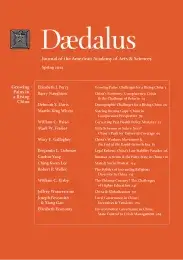The Politics of Increasing Religious Diversity in China
China has seen a remarkable growth and pluralization of religious activity over the past thirty years, a development that has rapidly overtaken the incremental and sluggish changes in the relevant regulatory structures. In much of the country, the government has managed the mismatch between religious practice and official rules by governing with “one eye open and one eye closed,” that is, by pretending not to notice violations of the regulations as long as people pretend that they are following the rules. Comparative evidence suggests that such a mode of governance can be long-lasting and effective by encouraging groups to self-censor, by allowing space for contextual experimentation, and by stressing the acceptance of nominal convention over the control of behavior. This situation is likely to continue unless China adopts a new vision of the desired relation between state and society.
